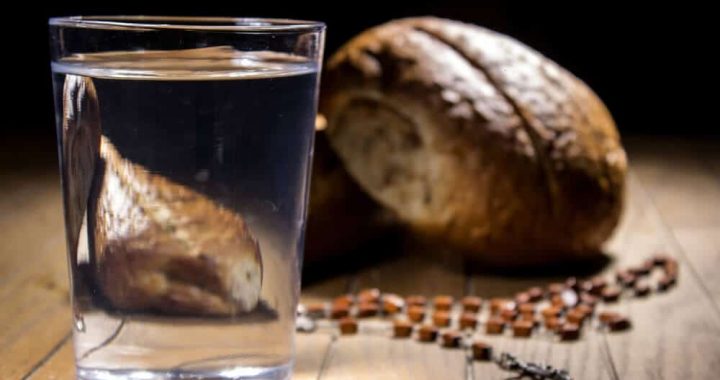Catholics between the ages of 18 and 59 are obliged to fast on Ash Wednesday on Feb. 26 and Good Friday on April 10.
In addition, all Catholics 14 and older must abstain from meat on Ash Wednesday, all the Fridays of Lent, and Good Friday.
What is fasting?
Fasting, as explained by the U.S. bishops, means partaking of only one full meal.
Some food (not equaling another full meal) is permitted at any time during the day, depending on when a person chooses to eat the main or full meal.
Some people are excused from fasting because of sickness, pregnancy, age or other reasons.
Still, all of us should keep in mind the Divine Law that each of us, in our own way, should do penance. We must all turn from sin and make reparation to God for our sins.
We must forgive and show love for one another just as we ask for God’s love and forgiveness.

We must forgive and show love for one another just as we ask for God’s love and forgiveness.



